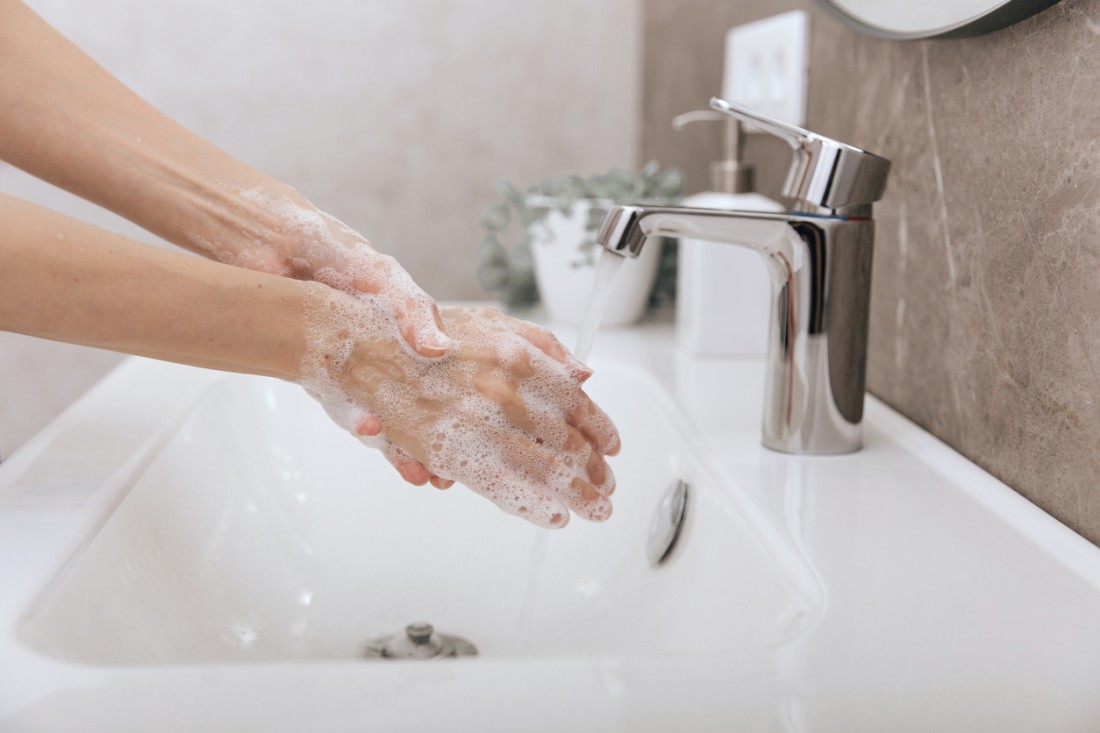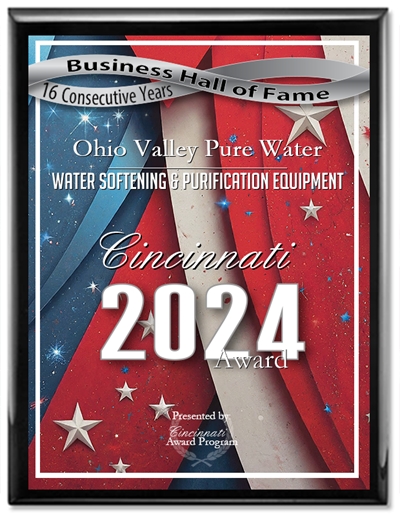 Let’s take things back to when we were young. Our parents, teachers, and adult influences taught us the basics of hygiene—brushing your teeth, washing your hands, and bathing regularly. But, what wasn’t factored into these lessons was the type of water you’re using. Hard water and soft water differ immensely in effectiveness when washing your hands, not to mention your clothes and dishes.
Let’s take things back to when we were young. Our parents, teachers, and adult influences taught us the basics of hygiene—brushing your teeth, washing your hands, and bathing regularly. But, what wasn’t factored into these lessons was the type of water you’re using. Hard water and soft water differ immensely in effectiveness when washing your hands, not to mention your clothes and dishes.
At Ohio Valley Pure Water, we take cleanliness seriously and are dedicated to providing Cincinnati, OH, residents with water that effectively reacts with soap and other household cleaning supplies. In this blog, we address how soap works and how hard water can impact your ability to keep your home (and yourself) washed.
Hard Water vs. Soft Water
Before we dive into the specifics of how soap and water combine for effective cleaning, we first need to discuss the difference between hard water and soft water. Hard water is a water supply that is high in mineral content—calcium and magnesium—and ranks between 7 and 10.5 GPG (grain per gallon) on the Water Quality Association’s hardness scale.
Soft water, on the other hand, is free from these harsh minerals with the help of water softener systems. Water is considered to be soft if it ranks less than 1 GPG. To learn more about soft water, take a look at our soft water blog.
The Chemical Make-Up of Soap
Soap is created using a chemical reaction that occurs when fats interact with alkali (soluble salts derived from metal alkali), a process commonly referred to as saponification. The most frequently used alkalis in soap-making are sodium hydroxide (NaOH) and potassium hydroxide (KOH).
When sodium chloride is mixed with fats, it creates “sodium soap,” often found in solid bar form and commonly used for bathing. If potassium hydroxide is used in the saponification process, it results in the production of soft soap, such as those found in liquid detergents and facial wash products.
The Cleaning Capacity of Soap
Soap molecules have two parts: one part likes water (hydrophilic), and the other part likes oil (hydrophobic). When you use soap and water to wash, the hydrophilic ends of soap molecules go into the water, and the hydrophobic ends attach to oil. Soap helps break down oil into tiny drops so they can mix with the water. This is how soap cleans by pulling dirt and grease from your body into the water. When you rinse with water, those oil droplets get washed away.
How Hard Water Affects Soap
Hard water affects soap use in two distinct ways:
Hard water reduces the cleaning capacity of soap. Soap is much more difficult to lather when used with hard water. The minerals in hard water react with the minerals in soap and form a soap scum instead of a consistently bubbled lather. When this happens, homeowners are forced to use 5x more soap to properly clean not only their bodies but laundry and dishes as well.
Soap scum is more present throughout your home. While soap scum can be removed with additional cleaners, the overall goal is to never have to deal with it to begin with. Soap scum can cause difficulties throughout your home, including damaging plumbing fixtures, staining bathtubs, making fabrics and clothes dull, leaving a film on your skin after washing, and so much more.
Increase Your Soap’s Effectiveness With Water Softeners
At Ohio Valley Pure Water, we believe everyone deserves to bathe and clean with water that doesn’t cost them more in the long run. Rather than spending additional money on an abundance of soap each month (or week), we recommend investing in a water softener. Our American-made whole-home water softeners work to replace the minerals found in hard water with sodium and potassium—creating softer, safer water for your home.
Each of our salt-based water softeners comes in three different models to choose from and starts at $2,498, including a standard installation. Learn more about how beneficial water softeners are by checking out our previous blog post.
Create a Cleaner Environment With OVPW
For the residents of Cincinnati, OH, and the surrounding areas, Ohio Valley Pure Water (OVPW) offers a variety of water filtration systems to ensure fresh, safe water. Choose from reverse osmosis systems, water softeners, and whole-house filtration systems to take control of your water and limit your soap usage. Contact us today at (513) 647-4038 to get started.



